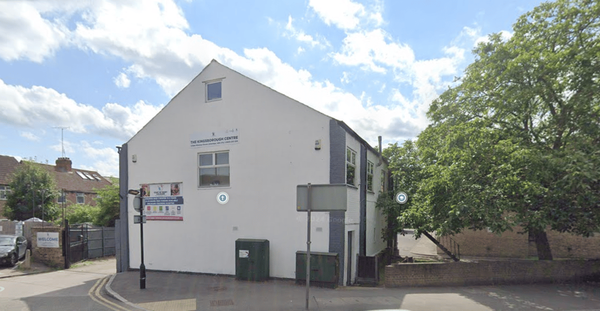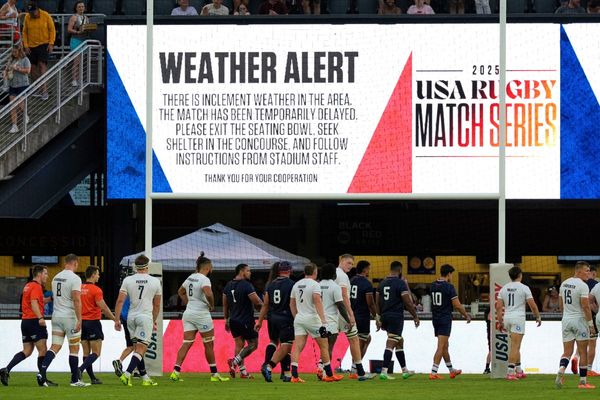
Two composers independently uttered cries from the heart last week, one in the grandeur of a Park Lane hotel, the other in the muggy heat of an eccentric “Tudorbethan” cinema in a Suffolk fishing village. Amid the raucous campaigning of a different kind, you may have heard neither. Oliver Knussen (b1952), receiving an Ivor Novello award for classical music, spoke of the “extraordinary number of incredibly gifted young composers” whose work deserves celebrating instead of being relegated to the status of “pond life”. (He was addressing his remarks especially to the BBC, that major commissioner still nervous of integrating new music into the mainstream.) As a guru and teacher to so many, and a sharp realist, Knussen is not prone to exaggeration.
In Aldeburgh one of his former pupils, Julian Anderson (b1967), gave the 2016 Hesse Lecture. Speaking movingly to a capacity crowd, he challenged fellow composers to take themselves seriously, to regard their achievements with pride. Rather than remain apologetically on the sidelines and assume the worst – a lost cause, bad box office – he urged them to throw themselves into the centre of the action. Aside from purely musical inventions, they have always made things happen. Take festivals. Wagner’s Bayreuth or Britten’s Aldeburgh exist only because of a composer’s vision.
Of the two, Aldeburgh is decidedly the more creative, inventive, thriving and varied. The idea that Aldeburgh was chiefly a platform for the music of its founder – Britten set it up, with his partner the tenor Peter Pears, and the writer Eric Crozier, in 1948 – is so out of date that it’s worth mentioning only as a reminder. Yet Britten remains the still point around which the two-week festival revolves.
This year the unexpected happened. Imagine going to Stratford for Shakespeare only to find all the talk is about his rival Christopher Marlowe. In Aldeburgh, the limelight fell on Michael Tippett (1905-1998), long overshadowed by Britten, his near contemporary. Instead of inventing some enterprise to promote himself, Tippett foolishly – in terms of his posterity anyway – set up a foundation specifically to help young musicians.
Here at last, Britten-Tippett was a theme: the tenor Toby Spence (intense and elegant in voice) and pianist Julian Milford, with the Heath Quartet and pianist Steven Osborne, combined chamber music and song, including Britten’s early Holy Sonnets of John Donne and Tippett’s late String Quartet No 5. Aldeburgh Voices sang works of both, and of Imogen Holst, in Blythburgh church. In the first of a pair of concerts conducted by Ryan Wigglesworth, the BBC Scottish Symphony Orchestra brought Tippett’s Ritual Dances from The Midsummer Marriage to vigorous life, displaying both the brassy, monumental ambition and the diaphanous woodwind and string detail of this magical score. A Tippett revival is in order. What an irony that it might happen, first, at Aldeburgh.
Another highlight of these BBCSSO concerts was Wigglesworth’s own composition, Locke’s Theatre (2013), in the UK premiere of the complete version. Baroque and contemporary styles united and splintered with agile and beguiling economy. The BBCSSO showed their skills, too, with Berlioz, Elgar, Debussy and recent work by Rebecca Saunders (b1967) – her Beckett-inspired Still, full of caustic beauty and written for the virtuosic soloist Carolin Widmann – as well as Colin Matthews’s Reflected Images (2003), moody, mysterious and poignant. Matthews also starred at Aldeburgh cinema in a new film to celebrate his 70th birthday by Barrie Gavin – interesting not least for the light it shines on Aldeburgh’s recent history.
No festival can represent the entire spectrum of new music, but Aldeburgh’s embrace continues to widen. Pierre-Laurent Aimard ends his term as artistic director this year. The role in future will be shared between a number of artist-programmers. Roger Wright, former head of the BBC Proms and now in his second year as Aldeburgh’s chief executive, has already introduced new programming ideas – as you might expect. Some third of all festival events are “home grown”, often devised as part of unseen, year-round residencies. This year’s have ranged from the day-long staging of Messiaen’s Catalogue d’Oiseaux to a festival organ crawl around Suffolk churches in a vintage bus.
Aldeburgh Music now owns the whole of the Snape Maltings site. The plan is to develop more of its derelict buildings and triple the number of year-round artist residencies from 25 to 75, with more on-site accommodation for artists (up to 100 bedrooms). All this will cost an as yet unspecified but princely sum. A fundraising campaign will be launched in June 2017. One urgent task is to ensure proper flood protection for the Snape site, its position between land and water, marsh, mud and sky, one of the most beautiful anywhere in the world.
So Aldeburgh is looking to the future. Wright will have the weighty responsibility of maintaining the festival’s unique atmosphere while discreetly, or radically, renewing its energies and purpose. There will be squeals. Audiences, many in their eighth, ninth and 10th decades, some of whom remember Britten and Pears, remain loyal, open-eared supporters.
Of course there are exceptions, such as the person I overheard announcing loudly that the next item, a new piece, couldn’t possibly be anything but dreadful, so she would sit it out. Being appalled in advance is a common response to contemporary music. Fifty years ago she would doubtless have sat out an unfamiliar piece by Britten. She will never know what aural adventure she missed. All music was new once.







